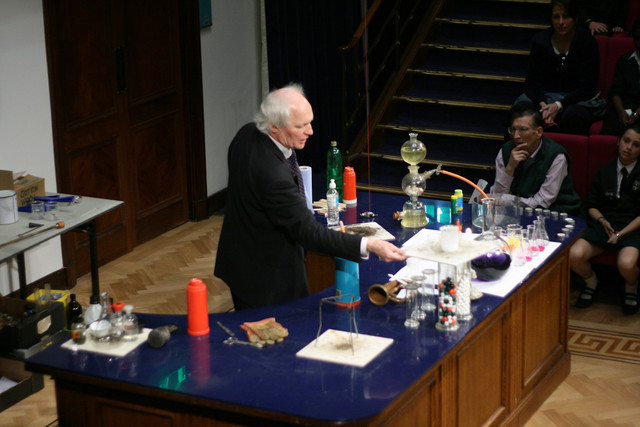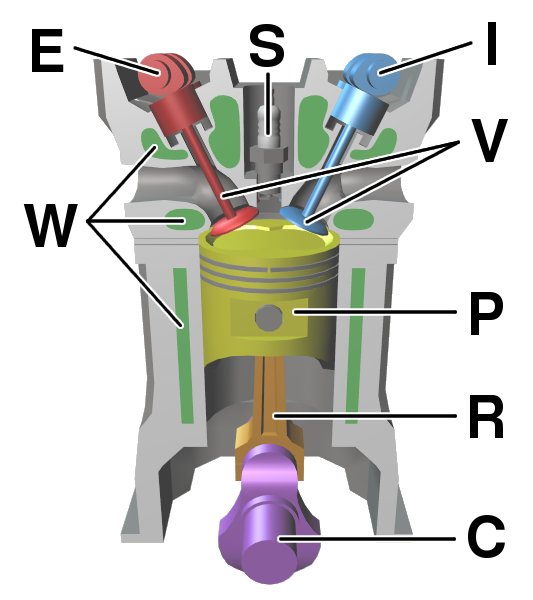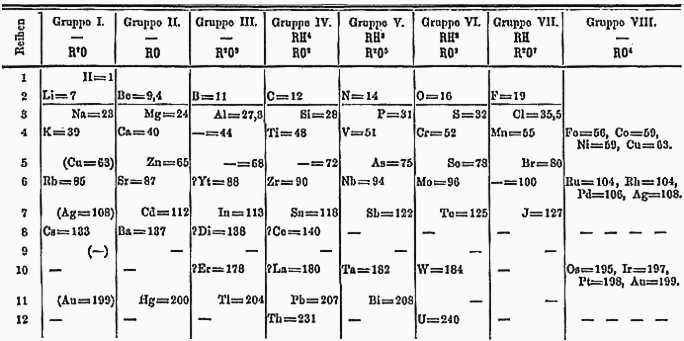|
Zbigniew Szydlo
Andrew Zbigniew Szydlo ( ; born 1949) is a British chemist and chemistry teacher, best known for his talks and lectures on chemistry. Biography Szydlo was born in London, England to Polish parents, and attended Latymer Upper School, and then Imperial College London and University College London. He currently teaches – since September 1972 – chemistry at Highgate School, a private school in North London. He holds MSc, PhD, Diploma of Imperial College, DIC, ACGI, and is a Royal Society of Chemistry, Fellow of the Royal Society of Chemistry, of which he is also a CChem. In 2020, Szydlo was awarded a Pearson National Teaching award for Lifetime Achievement. An expert on the history of alchemy, Szydlo is the author of the standard work on the Polish alchemist, Michael Sendivogius. The thesis of his book ''"Water that does not wet hands": The Alchemy of Michael Sendivogius'', which argues that Sendivogius' role in the discovery of oxygen has not received proper attention, has wo ... [...More Info...] [...Related Items...] OR: [Wikipedia] [Google] [Baidu] |
Chartered Chemist
Chartered Chemist (CChem) is a chartered status awarded by the Royal Society of Chemistry (RSC) in the United Kingdom, the Royal Australian Chemical Institute (RACI) in Australia, by the Ministry of Education in Italy, the Institute of Chemistry Ceylon (IChemC), Sri Lanka, and the Institute of Chartered Chemists of Nigeria in Nigeria. Achieving chartered status in any profession denotes to the wider community a high level of specialised subject knowledge and professional competence. The award of the Chartered Chemist (CChem) designation recognises the experienced practising chemist who has demonstrated an in-depth knowledge of chemistry, significant personal achievements based upon chemistry, professionalism in the workplace and a commitment to maintaining technical expertise through continuing professional development. UK In the United Kingdom, CChem candidates must meet the following requirements: * Be a Member or a Fellow of the RSC; * Hold a Master level accredited degree by ... [...More Info...] [...Related Items...] OR: [Wikipedia] [Google] [Baidu] |
Michael Sendivogius
Michael Sendivogius (; pl, Michał Sędziwój; 2 February 1566 – 1636) was a Polish alchemist, philosopher, and medical doctor. A pioneer of chemistry, he developed ways of purification and creation of various acids, metals and other chemical compounds. He discovered that air is not a single substance and contains a life-giving substance—later called oxygen—170 years before Scheele's discovery of the element. He correctly identified this 'food of life' with the gas (also oxygen) given off by heating nitre (saltpetre). This substance, the 'central nitre', had a central position in Sendivogius' schema of the universe. Biography Little is known of his early life: he was born in a noble family that was part of the Clan of Ostoja. His father sent him to study in university of Kraków but Sendivogius visited also most of the European countries and universities; he studied at Vienna, Altdorf, Leipzig and Cambridge. His acquaintances included John Dee and Edward Kelley. It w ... [...More Info...] [...Related Items...] OR: [Wikipedia] [Google] [Baidu] |
Internal Combustion Engine
An internal combustion engine (ICE or IC engine) is a heat engine in which the combustion of a fuel occurs with an oxidizer (usually air) in a combustion chamber that is an integral part of the working fluid flow circuit. In an internal combustion engine, the expansion of the high-temperature and high-pressure gases produced by combustion applies direct force to some component of the engine. The force is typically applied to pistons ( piston engine), turbine blades (gas turbine), a rotor (Wankel engine), or a nozzle ( jet engine). This force moves the component over a distance, transforming chemical energy into kinetic energy which is used to propel, move or power whatever the engine is attached to. This replaced the external combustion engine for applications where the weight or size of an engine was more important. The first commercially successful internal combustion engine was created by Étienne Lenoir around 1860, and the first modern internal combustion engine, known ... [...More Info...] [...Related Items...] OR: [Wikipedia] [Google] [Baidu] |
Hampton Court
Hampton Court Palace is a Grade I listed royal palace in the London Borough of Richmond upon Thames, southwest and upstream of central London on the River Thames. The building of the palace began in 1514 for Cardinal Thomas Wolsey, the chief minister of Henry VIII. In 1529, as Wolsey fell from favour, the cardinal gave the palace to the king to check his disgrace. The palace went on to become one of Henry's most favoured residences; soon after acquiring the property, he arranged for it to be enlarged so that it might more easily accommodate his sizeable retinue of courtiers. Along with St James' Palace, it is one of only two surviving palaces out of the many the king owned. The palace is currently in the possession of King Charles III and the Crown. In the following century, King William III's massive rebuilding and expansion work, which was intended to rival the Palace of Versailles, destroyed much of the Tudor palace.Dynes, p. 90. His work ceased in 1694, leaving the pala ... [...More Info...] [...Related Items...] OR: [Wikipedia] [Google] [Baidu] |
Cheltenham Science Festival
Cheltenham Science Festival is one of the UK's leading science festivals, and is part of Cheltenham Festivals: also responsible for the Jazz, Music and Literature Festivals that run every year. The 2018 Cheltenham Science Festival (6–11 June) was held in Imperial Square, Cheltenham. Introduction and history The youngest of the Cheltenham Festivals, the ''Cheltenham Science Festival'' was first held in 2002, and has quickly grown to become one of the most significant of its kind in the UK. Guests and directors The guest directors for Cheltenham Science Festival 2017 are television presenter and actor Dallas Campbell and former NASA Chief Scientist Ellen Stofan. The Festival has attracted many significant names in Science over the years, including Robert Winston (the first 'guest director' in 2004), David Puttnam (Director 2005), Jonathon Porritt (Director 2007), Adam Hart-Davis, Susan Greenfield, Richard Dawkins, Lucy Hawking, A. C. Grayling, Tony Robinson and Richard Hammon ... [...More Info...] [...Related Items...] OR: [Wikipedia] [Google] [Baidu] |
Royal Institution
The Royal Institution of Great Britain (often the Royal Institution, Ri or RI) is an organisation for scientific education and research, based in the City of Westminster. It was founded in 1799 by the leading British scientists of the age, including Henry Cavendish and its first president, George Finch. Its foundational principles were diffusing the knowledge of, and facilitating the general introduction of useful mechanical inventions and improvements, as well as enhancing the application of science to the common purposes of life (including through teaching, courses of philosophical lectures, and experiments). Much of the Institution's initial funding and the initial proposal for its founding were given by the Society for Bettering the Conditions and Improving the Comforts of the Poor, under the guidance of philanthropist Sir Thomas Bernard and American-born British scientist Sir Benjamin Thompson, Count Rumford. Since its founding it has been based at 21 Albemarle Street ... [...More Info...] [...Related Items...] OR: [Wikipedia] [Google] [Baidu] |
Durham University
, mottoeng = Her foundations are upon the holy hills (Psalm 87:1) , established = (university status) , type = Public , academic_staff = 1,830 (2020) , administrative_staff = 2,640 (2018/19) , chancellor = Sir Thomas Allen , vice_chancellor = Karen O’Brien , city = Durham and Stockton-on-Tees , state = , country = England , campus_size = , students = () , undergrad = () , postgrad = () , free_label = Student newspaper , free = '' Palatinate'' , colours = Palatinate , endowment = £98.2 million , budget = £393.2 million , academic_affiliations = Russell Group ACU Coimbra Group EUA N8 Group Matariki Network of Universities University of the ArcticUniversities UK Virgo Consortium , sporting_affiliations = BUCS, Wallace Group , sports_free_label = Sports team , sports_free = Team Durham , website = , logo = , embedded = Durham University (legally the University of Durham) is a collegiate public research university ... [...More Info...] [...Related Items...] OR: [Wikipedia] [Google] [Baidu] |
Cambridge University
, mottoeng = Literal: From here, light and sacred draughts. Non literal: From this place, we gain enlightenment and precious knowledge. , established = , other_name = The Chancellor, Masters and Scholars of the University of Cambridge , type = Public research university , endowment = £7.121 billion (including colleges) , budget = £2.308 billion (excluding colleges) , chancellor = The Lord Sainsbury of Turville , vice_chancellor = Anthony Freeling , students = 24,450 (2020) , undergrad = 12,850 (2020) , postgrad = 11,600 (2020) , city = Cambridge , country = England , campus_type = , sporting_affiliations = The Sporting Blue , colours = Cambridge Blue , website = , logo = University of Cambridge logo ... [...More Info...] [...Related Items...] OR: [Wikipedia] [Google] [Baidu] |
History Of Chemistry
The history of chemistry represents a time span from ancient history to the present. By 1000 BC, civilizations used technologies that would eventually form the basis of the various branches of chemistry. Examples include the discovery of fire, extracting metals from ores, making pottery and glazes, fermenting beer and wine, extracting chemicals from plants for medicine and perfume, rendering fat into soap, making glass, and making alloys like bronze. The protoscience of chemistry, alchemy, was unsuccessful in explaining the nature of matter and its transformations. However, by performing experiments and recording the results, alchemists set the stage for modern chemistry. While both alchemy and chemistry are concerned with matter and its transformations, chemists are seen as applying scientific method to their work. The history of chemistry is intertwined with the history of thermodynamics, especially through the work of Willard Gibbs. Ancient history Early humans A 100,000 ... [...More Info...] [...Related Items...] OR: [Wikipedia] [Google] [Baidu] |
Andrew Szydlo Experiment For LIYSF
Andrew is the English form of a given name common in many countries. In the 1990s, it was among the top ten most popular names given to boys in English-speaking countries. "Andrew" is frequently shortened to "Andy" or "Drew". The word is derived from the el, Ἀνδρέας, ''Andreas'', itself related to grc, ἀνήρ/ἀνδρός ''aner/andros'', "man" (as opposed to "woman"), thus meaning "manly" and, as consequence, "brave", "strong", "courageous", and "warrior". In the King James Bible, the Greek "Ἀνδρέας" is translated as Andrew. Popularity Australia In 2000, the name Andrew was the second most popular name in Australia. In 1999, it was the 19th most common name, while in 1940, it was the 31st most common name. Andrew was the first most popular name given to boys in the Northern Territory in 2003 to 2015 and continuing. In Victoria, Andrew was the first most popular name for a boy in the 1970s. Canada Andrew was the 20th most popular name chosen for male ... [...More Info...] [...Related Items...] OR: [Wikipedia] [Google] [Baidu] |
Richard Brzezinski
Richard is a male given name. It originates, via Old French, from Old Frankish and is a compound of the words descending from Proto-Germanic ''*rīk-'' 'ruler, leader, king' and ''*hardu-'' 'strong, brave, hardy', and it therefore means 'strong in rule'. Nicknames include "Richie", "Dick", "Dickon", " Dickie", "Rich", "Rick", "Rico", "Ricky", and more. Richard is a common English, German and French male name. It's also used in many more languages, particularly Germanic, such as Norwegian, Danish, Swedish, Icelandic, and Dutch, as well as other languages including Irish, Scottish, Welsh and Finnish. Richard is cognate with variants of the name in other European languages, such as the Swedish "Rickard", the Catalan "Ricard" and the Italian "Riccardo", among others (see comprehensive variant list below). People named Richard Multiple people with the same name * Richard Andersen (other) * Richard Anderson (other) * Richard Cartwright (other) * Ri ... [...More Info...] [...Related Items...] OR: [Wikipedia] [Google] [Baidu] |






